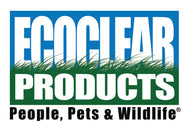Introduction
In an age where environmental awareness is at its peak, eco-friendly pest control is becoming increasingly significant. Traditional pest control methods often involve harsh chemicals that can pose risks to human health, pets, and the environment. As awareness grows about the impact of these chemicals, more people are turning to greener alternatives. Eco-friendly pest control not only provides a safer solution but also aligns with a sustainable approach to managing pest issues in and around our homes.
The Problem with Traditional Pest Control
Traditional pest control methods typically rely on synthetic chemicals that are effective at eradicating pests but come with significant downsides. Pesticides such as organophosphates and carbamates are commonly used, and while they may be effective in the short term, their long-term consequences can be severe.
Health Risks
Many conventional pesticides are linked to various health issues, including respiratory problems, skin irritations, and even more severe conditions like neurological damage and cancer. These chemicals can linger in the environment long after their application, leading to prolonged exposure and increased health risks for humans and pets.
Environmental Impact
The environmental impact of traditional pest control is equally concerning. Pesticides can contaminate soil, water, and air, leading to broader ecological damage. Non-target species, including beneficial insects, birds, and aquatic life, are often affected, leading to a disruption in ecosystems. This not only harms biodiversity but also contributes to problems such as the decline of pollinator populations, which are crucial for many crops and natural plant communities.
The Benefits of Eco-Friendly Pest Control
Eco-friendly pest control offers a viable alternative that addresses the shortcomings of traditional methods. It focuses on using natural, non-toxic substances and practices to manage pest populations effectively while minimizing harm to the environment and human health.
Safety for Humans and Pets
One of the primary benefits of eco-friendly pest control is its safety. Products that fall under this category are typically derived from natural sources and are free from harsh chemicals. This makes them safer for use around children and pets, reducing the risk of accidental poisoning and other health issues. For example, EcoClear's products, such as VoleX and RatX, utilize natural ingredients that are specifically formulated to target pests without posing a threat to other wildlife or humans.
Environmental Protection
Eco-friendly pest control methods are designed to have minimal environmental impact. They are biodegradable and do not leave harmful residues that can accumulate in the ecosystem. This approach helps protect water sources, soil quality, and non-target species. By choosing eco-friendly products, homeowners contribute to the overall health of the environment, ensuring that future generations can enjoy a cleaner, safer world.
Long-Term Solutions
Eco-friendly pest control often focuses on sustainable, long-term solutions rather than quick fixes. This might include preventive measures such as sealing entry points, maintaining proper sanitation, and using natural predators or repellents. These methods not only help control current pest problems but also prevent future infestations, leading to more sustainable pest management.
How Eco-Friendly Pest Control Works
Eco-friendly pest control methods and products work by targeting pests in ways that are safe for humans, pets, and the environment. These methods include a variety of techniques and substances that disrupt the life cycles of pests or make environments less hospitable to them.
Natural Pesticides
Natural pesticides are derived from plant extracts, minerals, and other natural sources. They work by interfering with the pests' biological processes without causing harm to humans or other non-target species. For example, neem oil, a popular natural pesticide, disrupts the hormonal systems of insects, preventing them from growing and reproducing.
Biological Controls
Biological controls involve using natural predators or parasites to control pest populations. This method is highly effective and poses no risk to the environment. Examples include ladybugs to control aphids and nematodes to target soil-dwelling pests.
Physical Barriers
Physical barriers, such as screens, nets, and caulking, can effectively prevent pests from entering homes and gardens. This method is particularly useful for keeping out rodents and insects without the need for chemical treatments.
Integrated Pest Management (IPM)
Integrated Pest Management (IPM) is a comprehensive approach that combines multiple eco-friendly techniques to manage pest populations effectively. IPM focuses on prevention, monitoring, and control, using a combination of natural and mechanical methods to minimize pest damage.
Implementing Eco-Friendly Pest Control at Home
Adopting eco-friendly pest control practices in your home is both practical and beneficial. Here are some steps to help you get started:
Prevention
- Seal Entry Points: Inspect your home for gaps, cracks, and other entry points where pests can enter. Seal these areas with caulk or other appropriate materials.
- Maintain Cleanliness: Regular cleaning reduces the likelihood of attracting pests. Pay special attention to kitchens, bathrooms, and areas where food is stored or consumed.
- Proper Waste Management: Keep garbage bins sealed and dispose of waste regularly. Composting organic waste can also help reduce the attraction of pests.
Natural Deterrents
- Essential Oils: Use essential oils such as peppermint, eucalyptus, and tea tree oil to deter pests. These oils can be applied around entry points and other problem areas.
- Natural Predators: Encourage natural predators, such as birds and beneficial insects, by creating a garden that attracts them. Planting a variety of native plants can help support these natural allies.
Eco-Friendly Products
- EcoClear Products: Consider using EcoClear's range of eco-friendly pest control products. These products are formulated to target specific pests without harming the environment or other animals.
Conclusion
Eco-friendly pest control offers a sustainable, safe, and effective way to manage pest problems in and around your home. By choosing natural products and methods, you not only protect your family and pets but also contribute to a healthier environment. The shift towards eco-friendly pest control reflects a broader commitment to sustainability and responsible living. With the right knowledge and tools, anyone can adopt these practices and make a positive impact on their home and the world around them.



